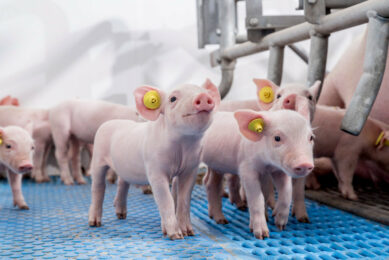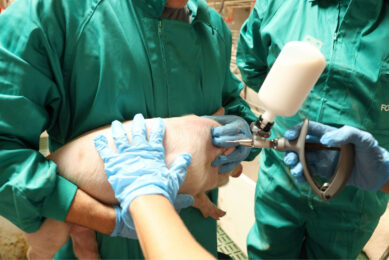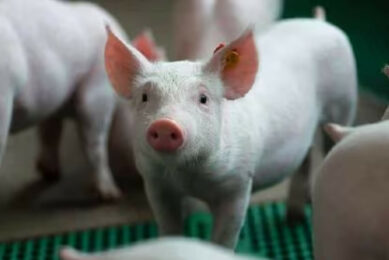UK: BPEX Pig health and welfare strategy
Improved pig health and welfare could easily be worth as much as £25 million a year to the British industry.
An extra 50g weight gain per day as a result of improved health would return between £2 and £3.50 per pig – between £15 and £25m a year.
BPEX has just produced a new health and welfare strategy with support from across the industry and launched by chief veterinary officer Nigel Gibbens.
20:20 Pig Health and Welfare builds on the success of the first strategy launched at the end of 2003.
One of the key elements is the Pig Health Improvement Project (PHIP). The national Stage 1 is underway and in addition there will be pilot projects with groups of producers across the country. It aims to change completely the way endemic pig diseases are managed, mitigated and controlled across the country.
This will require a radical change in the mindset of all involved – from a rather singular, self-contained approach to a far more inclusive, co-ordinated and collaborative one.
BPEX chairman Stewart Houston said: “Improving the health and welfare of pigs is of paramount importance to all of those involved in the industry in England.
“It affects our cost of production, our ability to compete in a highly competitive EU market, our impact on the environment, the safety of the food we produce, our responsibility to the animals in our care, our reputation as a producer of high welfare pork, bacon, ham and other pork products and ultimately our ability to produce a secure supply of food in an increasingly volatile world.
“Despite the progress we have already made we remain behind many of our immediate competitors on key measures of efficiency. Improving pig health is key to closing this competitiveness gap.”
The key elements of the strategy are:
- Support pig producers in delivering their objectives for continual improvements in pig health and pig welfare
- Eliminate or control significant enzootic pig diseases locally, regionally and nationally
- Eliminate or control significant infections of food safety and public health concern (eg Salmonella)
- Develop and promote new knowledge on the assessment of welfare outcomes
- Promote the open exchange of information on the disease status for herds and regions
- Promote and encourage responsible and appropriate use of antimicrobials
- Maintain freedom from notifiable exotic and emerging diseases of pigs
- Deliver an integrated approach to improving pig health and welfare with all stakeholders, allied support industries, retailers, foodservice and Government
BPEX Interim head of research and development Derek Armstrong said: “The really encouraging part is that there are a lot of organisations committed to working together to deliver a coherent vision of health and welfare.”
Source: BPEX











